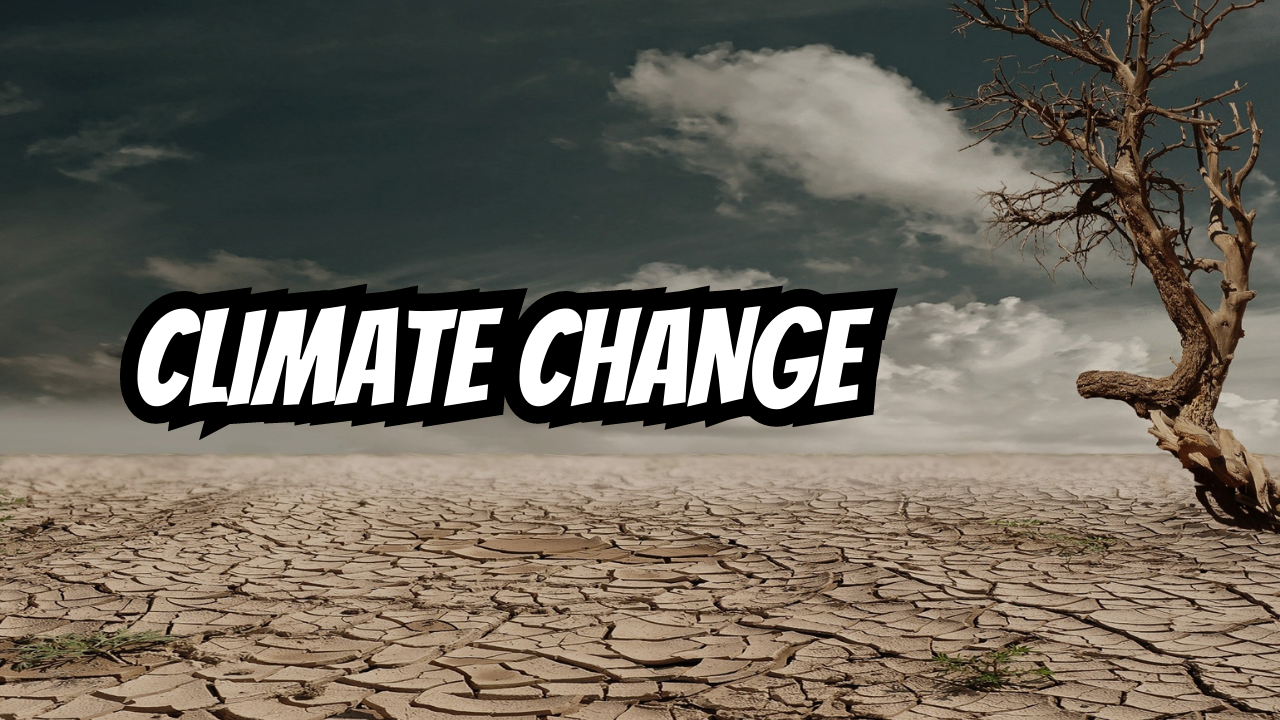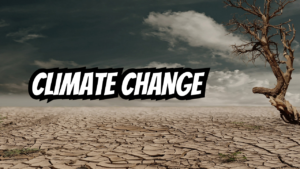
Climate Change – Causes, Consequences and Solutions
Introduction
One of the biggest environmental issues facing the globe now is climate change. The concentration of greenhouse gases in the atmosphere has increased as a result of human activities, particularly the burning of fossil fuels and deforestation. These greenhouse gases trap heat from the sun, causing the Earth’s climate to warm up. As a result, we are seeing rising sea levels, severe weather events, and natural resource depletion. This article examines the causes, effects, and potential solutions to this urgent global problem related to climate change.

Causes of Climate Change
The primary factor causing climate change is human activity. Carbon dioxide and other greenhouse gases are released into the atmosphere when fossil fuels like coal, oil, and gas are burned. These gases trap heat from the sun, causing the Earth’s climate to warm up. Deforestation also contributes to climate change, as trees absorb carbon dioxide and release oxygen into the atmosphere. When trees are cut down or burned, the carbon stored in them is released into the atmosphere, contributing to the concentration of greenhouse gases.
Consequences of Climate Change
Climate change has numerous environmental, social, and economic consequences. Here are some of the most significant consequences:
Rising Sea Levels: Sea levels are rising as a result of the melting of glaciers and ice caps and an increase in global temperature. Flooding, coastal erosion, and damage to infrastructure and property are all effects of rising sea levels.
Severe weather events: Climate change can cause more frequent and severe weather events, such as hurricanes, droughts, and wildfires. These events can cause significant damage to homes, infrastructure, and crops.
Natural resource depletion: Climate change can cause the depletion of natural resources including soil and water. For instance, water shortages brought on by droughts can have a big influence on agricultural and food production.
Human health impacts: Climate change can significantly impact human health, such as increased heat-related illnesses, the spread of diseases, and poor air quality.
Solutions of Climate Change
Addressing climate change requires a comprehensive approach that involves reducing greenhouse gas emissions, adapting to the impacts of climate change, and promoting sustainable development. Here are some potential solutions:
Reducing greenhouse gas emissions: To reduce greenhouse gas emissions, we must transition away from fossil fuels and towards renewable energy sources such as wind, solar, and hydropower. We also need to improve energy efficiency in buildings, transportation, and industry.
Promoting sustainable agriculture and forestry: Sustainable agriculture and forestry practices can help sequester carbon and reduce emissions from deforestation and agriculture.
Investing in public transportation and active transportation: Investing in public transportation and active transportation such as cycling and walking can reduce emissions from transportation.
Adapting to the impacts of climate change: To adapt to the impacts of climate change, we need to invest in infrastructure such as sea walls, stormwater management systems, and drought-resistant crops.
Promoting sustainable development: Sustainable development practices such as green building, circular economy, and waste reduction can help reduce emissions and promote more sustainable consumption and production patterns.
Conclusion
The globe is currently confronting a serious environmental problem in the form of climate change. The concentration of greenhouse gases in the atmosphere has increased as a result of human activities, particularly the burning of fossil fuels and deforestation. Rising sea levels, extreme weather events, and the depletion of natural resources are just a few of the many environmental, social, and economic effects of climate change. A comprehensive strategy is needed to combat climate change, one that includes lowering greenhouse gas emissions, preparing for its effects, and fostering sustainable development. We can create a more egalitarian and sustainable future for ourselves and future generations by addressing climate change.
Admin at The Pakistan Gazette

